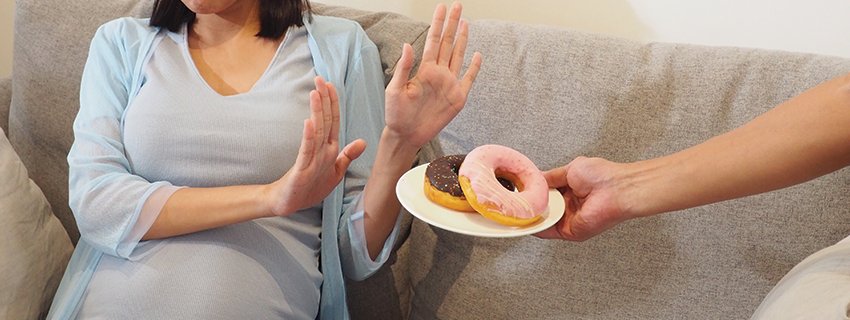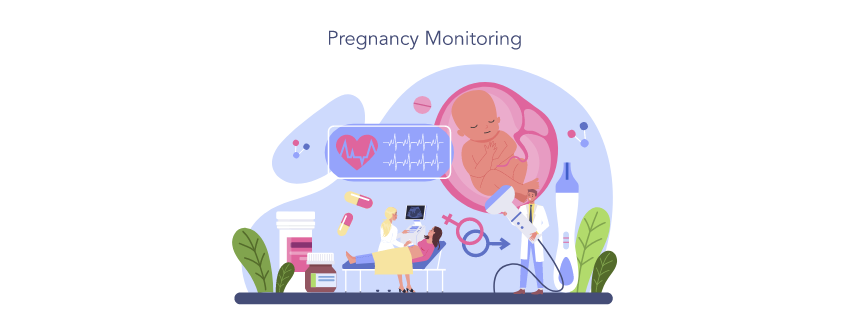Trying to conceive? Here are 10 things you should avoid.
If you are trying to conceive and are bringing home the Prega News Kit, this is a must read for you. Whether you are just starting to plan a child or already trying, a pregnancy test is the easiest way to find out if you have succeeded. However, seeing the Prega News test result as negative can be a disappointing feeling. This may be due to many factors. Maybe you just started trying or you have underlying health conditions or maybe you even missed your ovulation window – whatever be the reason, there are some things that you should always avoid when trying to conceive. These things are very important and can not only affect your chances of conception but also your fertility. That’s why, Prega News – India’s No. 1 Pregnancy detection kit* has put together this quick checklist for people who are trying to conceive. So let’s have a look at some of the things to follow and avoid while trying to have a baby.
Food Habits
While you may think that you’re overall maintaining good food habit, there may be some hidden factors that can affect your fertility. What you put in your body is extremely important at every stage and more so, when you are trying to conceive. While some foods can affect fertility, others can be harmful for your unborn child.
● Junk food: Avoiding junk food is always recommended. While an occasional indulgence is considered okay, studies shows that women who regularly consume junk food, have a difficult time while conceiving. It is not only bad for the body but can also significantly delay the pregnancy.
● Mercury rich food: While seafood and fish are generally considered good sources of protein and zinc, certain fish like swordfish, salmon, shark etc. are best avoided if you are trying to conceive. These have a high content of mercury and while it doesn’t affect adults, it can stay in your bloodstream and affect fertility and even hamper the brain and nervous system development in the foetus.
● Excess refined sugar: Added sugar such as found in artificial juices and soda, have a harmful effect on both female and male fertility. It causes an insulin spike, which in turn hampers the ovaries and essential hormones.
Lifestyle Habits
Lifestyle has a significant impact on fertility and pregnancy. From small to big changes – there are some lifestyle habits that should be avoided when trying to start a family.
● Smoking, alcohol, caffeine and recreational drugs: The illeffects of smoking, alcohol and recreational drugs are well-known and are well-avoided by everyone, more so if you’re trying to get pregnant. Enjoying an occasional beverage or savouring that morning cup of coffee is considered to be alright, but is best avoided or limited when you’re planning to conceive. The effects of all these are harmful for the baby and also for your fertility.
● Stress: Stress has shown to be an increasingly important factor in infertility – our lifestyle causes stress and this can hamper both male and female fertility.
● Heavy or no exercise: Anything in excess is bad and this is true even for exercise – leading a dormant lifestyle or working out too much can both affect your ability to conceive.
● Sudden weight gain or loss: Ideally, you should already be at a good place when planning a family, so avoid shedding too much weight or putting on too much when trying to get pregnant. Both of these, when occurring suddenly in a body, can impact fertility.
● Inadequate sleep: A very crucial factor – a good night’s rest is absolutely essential for your body to heal, recover and rejuvenate. This allows enough time for your hormones and reproductive health to be prepared for the next stage.
● Sperm harming lubricants: Some lubricants can harm the sperms, disrupt the pH balance and ultimately affect your chances of conception. Use natural lubricants or natural ingredient based lubricants instead.
● Skipping vaccines: It is understandable that you may have concerns around trying to take a COVID vaccine or any other vaccine – however, it is best to leave that decision up to your doctor who can decide the best vaccines for you.
Tips to Boost Fertility
Before looking up, ‘trying to conceive tips’, it is important to understand all the factors that affect fertility as explained above. Apart from avoiding the above things, there are certain things that can help boost your fertility:
● Eat healthy – including fruits and vegetables, good natural sources of protein and cut back on trans-fat and refined or processed food.
● Exercise regularly – whether it’s a walk or a lap in the pool – include some physical activity in your routine to stay active and maintain a healthy weight.
● Monitor your ovulation and menstrual cycle to look for the best fertile window.
● Get regular check-ups and prenatal tests to stay healthy.
● Consult your doctor for supplements and prenatal vitamins.
● Stay hydrated – a much less discussed topic but very important – have enough fluids to stay hydrated throughout the day.
● Practice meditation and take your time to relax to fight stress and boost your fertility.
● Choose organic vegetables to reduce the toxins in your body and get the most nutrients naturally.
● Having sex regularly also increases your chances of conception – so make sure to keep things interesting and genuinely enjoy the act rather than putting pressure on it.
● Be kind towards yourself and your partner – in the process of trying and especially if you are trying to conceive after miscarriage – it’s important to love and appreciate each other to keep things harmonious and keep stress at bay.
FAQ
Can I still smoke while trying to conceive?
Smoking can not only affect your fertility but also impact the growth and development of your unborn child. It is best to quit smoking as soon as you can or at least a few months before trying to conceive.
Will caffeine be harmful for pregnancy in the near future?
While moderate amounts of caffeine are considered to be okay during and before pregnancy, it’s best to consult your doctor to assess your health and understand how much caffeine is safe for you.











































Leave a comment